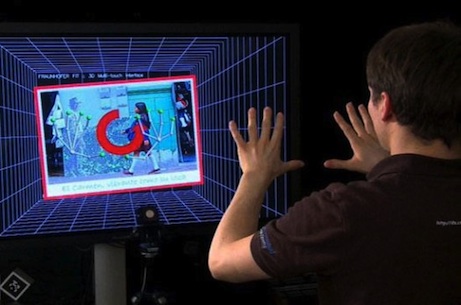
A Gates Cambridge Alumnus has published the first book to address the challenges in developing state-of-the-art interactive technologies for the Indian population.
A Gates Cambridge Alumnus has published the first book to address the challenges in developing state-of-the-art interactive technologies for the Indian population.
Inclusive Human Machine Interaction for India by Pradipta Biswas has been published this month.
It investigates the use of the latest interactive devices (such as eye-tracking and brain-computer interaction) by age-related or physically impaired users and includes a case study which covers the whole life-cycle developing interactive systems.
Pradipta says: “Rapid advancement of interactive technologies during the past two decades has made access to information easier though at the expense of a clear digital divide. There is a generation who grew up with these technologies and another generation who find many modern electronic systems counter-intuitive and have no use for them in their daily lives. This digital divide becomes more prominent in developing countries as state-of-the-art interactive systems were not and are still not affordable to a large number of users.”
The book begins with a foreword from Professor Ashok Jhunjhunwala from the Indian Institute of Technology Madras and investigates problems of middle-aged and elderly users in adopting interactive technologies. It proposes new user interfaces and interaction techniques and discusses state-of-the-art eye-gaze tracking based interaction and its application to everyday computing tasks.
Pradipta says the technologies presented in his book will not only be relevant for developing countries but will also find useful applications in developed countries.
Pradipta was also lead editor on A multi-modal end-to-end approach to accessible computing, a handbook which aims to help researchers and practitioners make it easier for elderly and disabled people to use interactive services like subtitling and audio cassette versions of books has been edited by a Gates Cambridge alumnus. Since its publication last year, it has been downloaded more than 700 times.
Pradipta [2006], who did a PhD in Computer Science and is currently a Research Fellow at the Wolfson College and Engineering Design Centre, is also the lead inventor of two patent applications in India – one for a user perception-based prediction of graphical user interface and the other for the prediction of modality of interaction with an electronic device based on user impairment.
The patents are about an inclusive user model that helps designers to understand, visualise and measure effect of physical impairment on electronic user interfaces and also helps to personalise user interfaces for people with different range of abilities irrespective of device and application.
This inclusive user modelling system has found applications in a wide variety of EU and Indian systems including a digital TV framework for elderly users, an Alternative and Augmentative Communication Aid for children with learning difficulties, an electronic agricultural advisory system, a weather monitoring system and an emergency warning system.
Picture credit: Techfest – www.techfest.org












